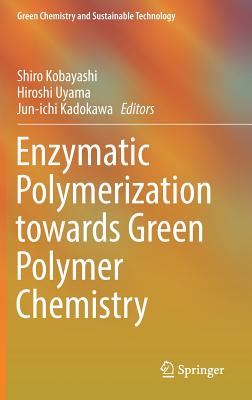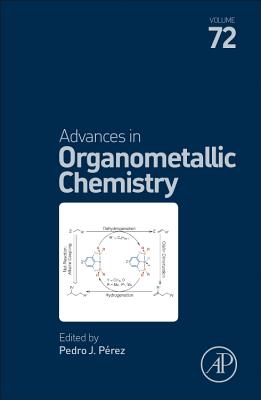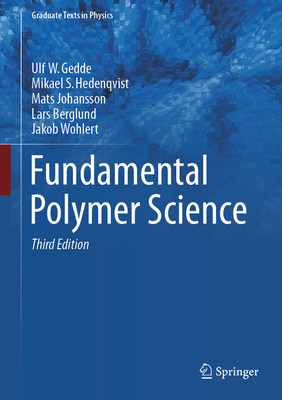Enzymatic Polymerization Towards Green Polymer Chemistry
暫譯: 酶促聚合:邁向綠色聚合物化學
Kobayashi, Shiro, Uyama, Hiroshi, Kadokawa, Jun-Ichi
- 出版商: Springer
- 出版日期: 2019-04-15
- 售價: $7,940
- 貴賓價: 9.8 折 $7,781
- 語言: 英文
- 頁數: 389
- 裝訂: Hardcover - also called cloth, retail trade, or trade
- ISBN: 9811338124
- ISBN-13: 9789811338120
-
相關分類:
材料科學 Meterials
海外代購書籍(需單獨結帳)
相關主題
商品描述
- The three classes of enzymes, oxidoreductases, transferases and hydrolases, have been employed as catalysts for enzymatic polymerization and modification;
- Well-defined polysaccharides are produced by enzymatic polymerization catalyzed by hydrolases and transferases; Hydrolase-catalyzed polycondensation and ring-opening polymerization are disclosed to produce a variety of polyesters;
- Polyesters are synthesized by in-vivo acyltransferase catalysis produced by microorganisms;
- Enzymatic polymerization catalyzed by appropriate enzymes also produces polypeptides and other polymers;
- Poly(aromatic)s are obtained by enzymatic polymerization catalyzed by oxidoreductases and their model complexes;
- Such enzymes also induce oxidative polymerization of vinyl monomers;
- Enzymatic modification of polymers is achieved to produce functionalized polymeric materials;
- The enzymatic polymerization is a green process with non-toxic catalysts, high catalyst efficiency, green solvents and renewable starting materials, and minimal by-products;
- Moreover, renewable resources like biomass are potentially employed as a starting substrate, producing useful polymeric materials.
商品描述(中文翻譯)
本書全面涵蓋了酵素聚合及相關酵素方法的研究,以生產明確定義的聚合物,這對於進行綠色聚合物化學具有重要價值和前景。全書共分為十二章,涵蓋以下主題:
- 三類酵素:氧化還原酵素(oxidoreductases)、轉移酵素(transferases)和水解酵素(hydrolases)被用作酵素聚合和修飾的催化劑;
- 通過水解酵素和轉移酵素催化的酵素聚合生產明確定義的多醣;水解酵素催化的聚縮合和開環聚合被揭示用於生產各種聚酯;
- 聚酯是通過微生物產生的in-vivo 酰基轉移酶催化合成的;
- 適當酵素催化的酵素聚合也能產生多肽和其他聚合物;
- 通過氧化還原酵素及其模型複合物催化的酵素聚合可獲得聚(芳香族)化合物;
- 這些酵素還能誘導乙烯單體的氧化聚合;
- 聚合物的酵素修飾可實現功能化聚合材料的生產;
- 酵素聚合是一個綠色過程,使用無毒催化劑、高催化效率、綠色溶劑和可再生起始材料,並且產生的副產品最小;
- 此外,可再生資源如生物質有潛力作為起始基質,生產有用的聚合材料。
本書不僅對於年輕的聚合物化學家如研究生具有教育意義,還對工業研究人員具有啟發性,顯示了聚合物合成未來方向對於維持可持續社會的重要性。
作者簡介
Hiroshi Uyama obtained his Master Degree of Engineering from Kyoto University in 1987 and subsequently Doctor Degree of Engineering from Tohoku University in 1991 under the direction of Professor Shiro Kobayashi. In 1987 he joined as an Assistant Professor in Tohoku University, thereafter moved to Kyoto University in 1997 and is presently a Professor in the Department of Applied Chemistry, Osaka University. He is the recipient of several awards and recognitions, including the Young Scientist Award (Chemical Society of Japan) and the Highest Award of Japan Bio-technology Business Competition. His research interests include biomass plastics and nano-processing of polymers.
Jun-ichi Kadokawa studied applied chemistry and materials chemistry at Tohoku University, where he received his M.S. degree in 1989 and his Ph. D. in 1992 under the supervision of Prof. Shiro Kobayashi. He then joined Yamagata University as a Research Associate. From 1996 to 1997, he worked as a visiting scientist in the research group of Prof. Klaus Müllen at the Max-Planck-Institute for Polymer Research in Germany. In 1999, he became an Associate Professor at Yamagata University and moved to Tohoku University in 2002. He was appointed as a Professor of Kagoshima University in 2004. His research interests focus on enzymatic synthesis of non-natural polysaccharides, new polysaccharide-based materials, and control of the higher-ordered structures of polysaccharides. He received the Award for Encouragement of Research in Polymer Science (1998) and the Cellulose Society of Japan Award (2010).
作者簡介(中文翻譯)
小林志郎在京都大學學習有機化學和聚合物化學,獲得學士、碩士和博士學位。他在凱斯西儲大學與G. A. Olah教授合作擔任博士後研究員兩年。1972年,他加入京都大學擔任研究助理,開始研究聚合物合成。1976年,他作為洪堡學者在美因茨大學與H. Ringsdorf教授合作。1986年,他被任命為東北大學的正教授,開始研究酶促聚合。1997年,他轉至京都大學,並於2005年正式退休,成為名譽教授。自那時起,他一直是京都工藝大學的特聘教授,直到2017年。他的研究興趣包括聚合物合成和功能性聚合物材料。特別是,他開發了酶促聚合,實現了幾種多醣類(如纖維素、木聚糖、幾丁質、透明質酸和軟骨素)、各種功能性聚酯和新型芳香聚合物的首次化學合成。這一方法對綠色聚合物化學做出了重要貢獻。迄今為止,他已發表195篇有關酶促聚合的原創研究論文。他獲得了多項獎項,包括:日本化學會青年化學家獎(1976年)、日本聚合物科學會獎(1986年)、德國洪堡研究獎(1999年)、日本化學會獎(2001年)、服部報告會基金會獎(2001年)、南加州大學第30屆約翰·斯托弗科學傑出講座獎(2002年)、紫綬勳章(2007年,日本政府)以及瑞寶章金光勳章(2015年,日本政府)。自1999年以來,他是德國科學院的外籍成員,並於2015年成為美國化學會PMSE Fellow。他曾是美因茨馬克斯·普朗克聚合物研究所的科學顧問委員會成員(2001-2009年)。至今,他擔任過二十四本國際期刊的編輯、區域編輯或名譽編輯,並作為(執行)顧問委員會或編輯(顧問)委員會的成員,目前正在為四本期刊服務。他編輯了16本書籍,包括《精密聚合中的催化》(WILEY,1997年)和《聚合物納米材料百科全書》(Springer,S. Kobayashi和K. Muellen共同編輯,2015年)。他已發表約470篇原創研究論文,以及約240篇綜述論文、書章等。
宇山宏志於1987年在京都大學獲得工程碩士學位,隨後於1991年在東北大學獲得工程博士學位,指導教授為小林志郎教授。1987年,他在東北大學擔任助理教授,之後於1997年轉至京都大學,目前是大阪大學應用化學系的教授。他獲得了多項獎項和榮譽,包括日本化學會青年科學家獎和日本生物技術商業競賽最高獎。他的研究興趣包括生物質塑料和聚合物的納米加工。
門川純一在東北大學學習應用化學和材料化學,於1989年獲得碩士學位,1992年在小林志郎教授的指導下獲得博士學位。隨後,他在山形大學擔任研究助理。1996年至1997年,他在德國馬克斯·普朗克聚合物研究所的Klaus Müllen教授研究小組擔任訪問科學家。1999年,他成為山形大學的副教授,並於2002年轉至東北大學。2004年,他被任命為鹿兒島大學的教授。他的研究興趣集中在非天然多醣的酶促合成、新型多醣基材料以及多醣的高階結構控制上。他獲得了聚合物科學研究鼓勵獎(1998年)和日本纖維素學會獎(2010年)。











